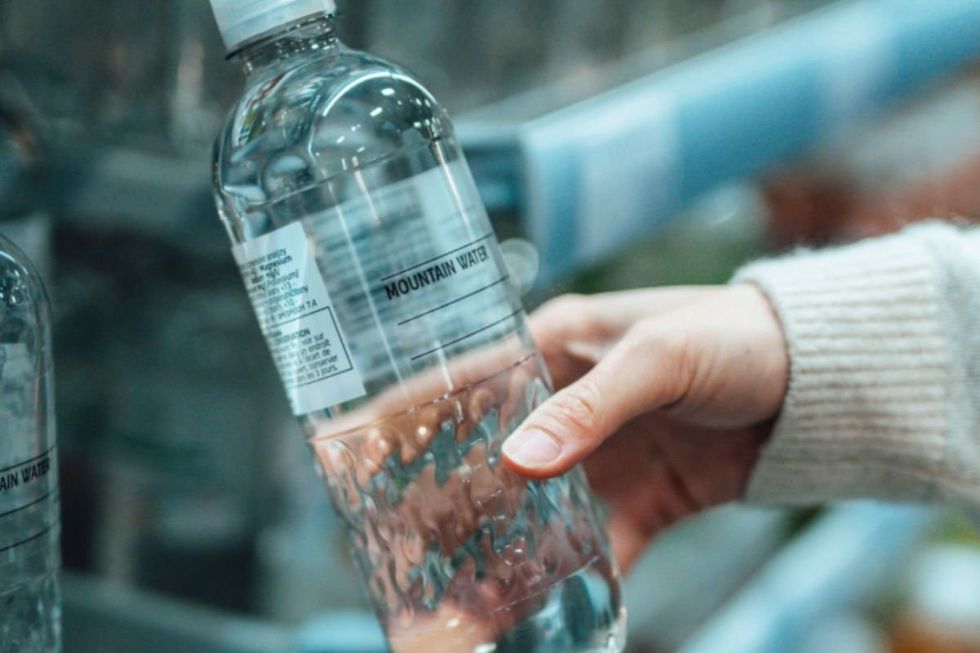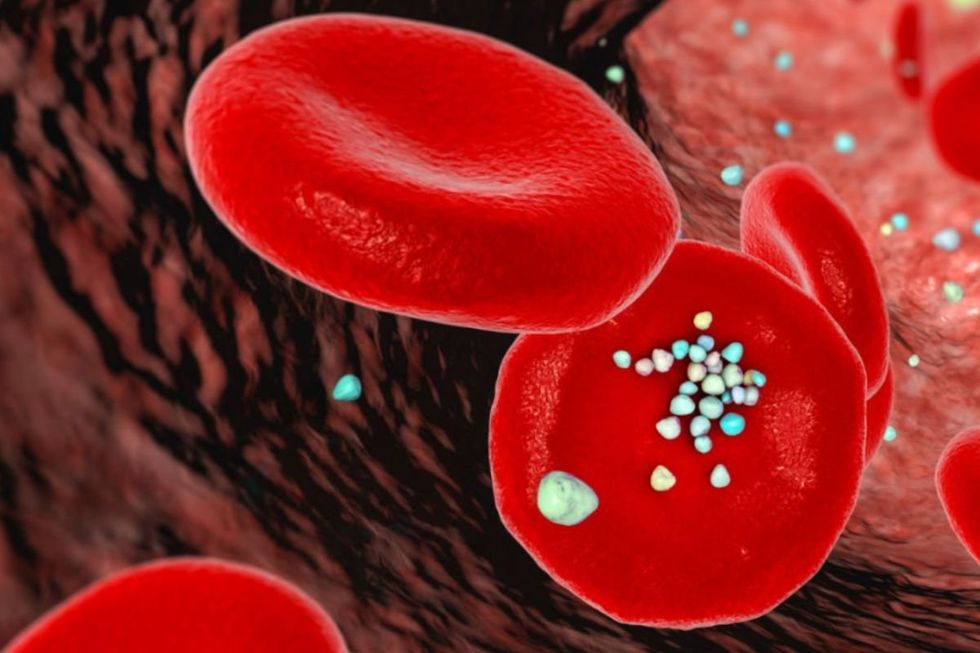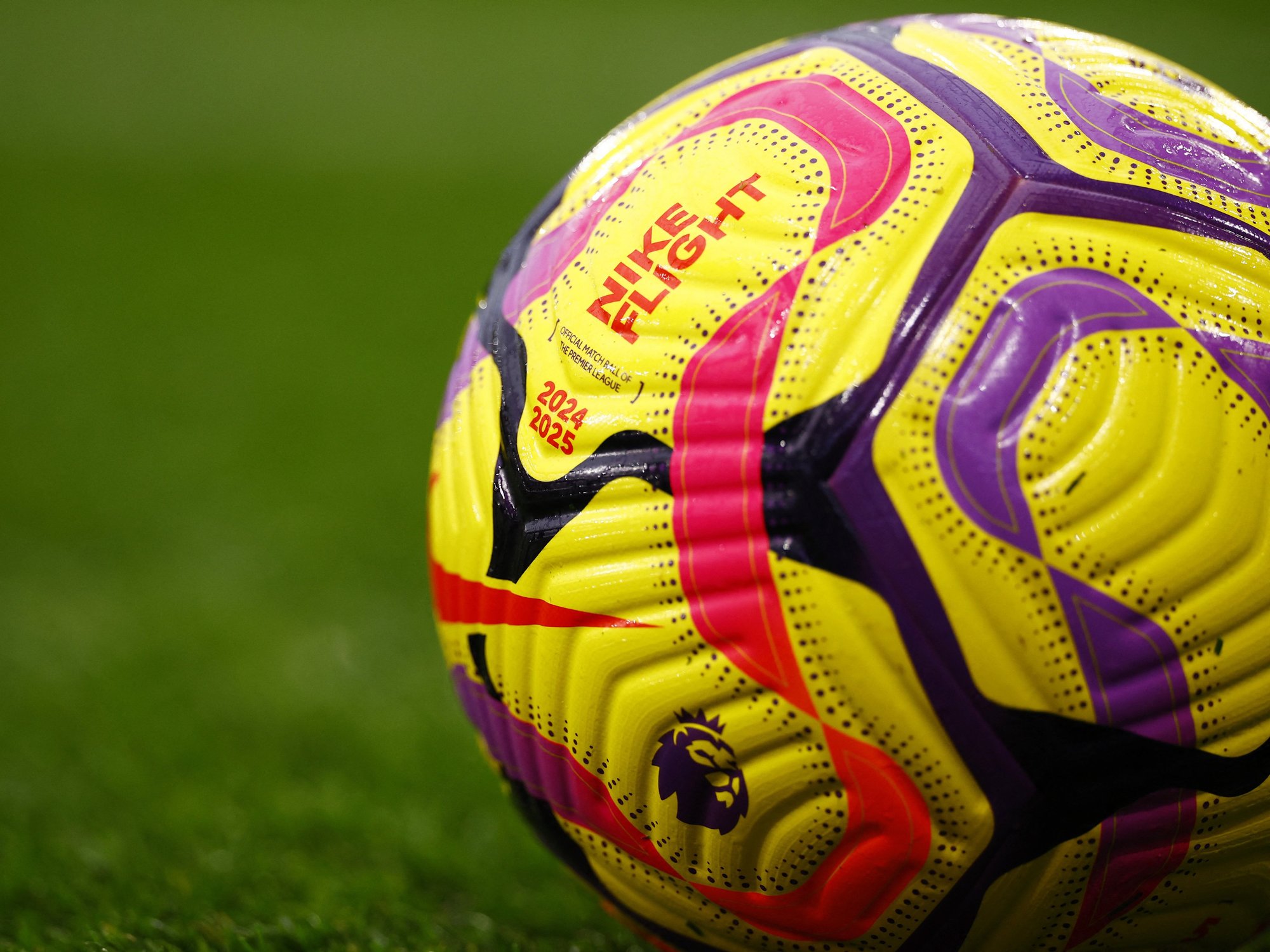Do you drink bottled water? Scientists warn you may be swallowing 90,000 extra plastic particles a year - and raise cancer risks

WATCH NOW: NHS Scotland launches AI trial to help detect lung cancer and strokes in X-rays
|GBN

The warning comes amid growing evidence that the tiny particles are deeply penetrating the body
Don't Miss
Most Read
Reaching for bottled water instead of turning on the tap could mean swallowing an extra 90,000 tiny plastic particles every year, scientists have warned.
New research from Concordia University reveals that people who regularly drink from plastic bottles are consuming far more microplastics than those who stick to tap water.
These microscopic fragments - some as small as two thousandths of a millimetre - can slip past the body's natural defences and settle in vital organs.
Scientists have found them in human lungs, placentas, breast milk and even blood, raising serious concerns about how deeply they're penetrating our bodies.

Scientists have found plastic particles in human lungs, placentas, breast milk and blood
|GETTY
TRENDING
Stories
Videos
Your Say
The potential health consequences are alarming, with links to cancer, chronic inflammation, hormone problems and brain damage.
Environmental management expert Sara Sajedi, who led the study, described the health risks as "serious" and warns that drinking from plastic bottles should only happen in emergencies.
"Education is the most important action we can take," she says. "People need to understand that the issue is not acute toxicity - it is chronic toxicity."
The research links microplastic consumption to oxidative stress in cells, fertility problems and various cancers. These particles form during bottle manufacturing, storage and transport, meaning people swallow them directly rather than through the food chain.
Despite mounting evidence of harm, scientists say we still don't fully understand the long-term effects because there's no standardised testing or global monitoring system in place.
Fresh evidence from Australia has revealed another worrying dimension to the microplastic problem. Researchers examining stool samples from healthy volunteers discovered that these tiny plastic particles can actually change the activity of microbes in our guts.
The findings are particularly troubling because some of these changes mirror patterns previously associated with depression and bowel cancer.
It's the first human study to show that microplastics can alter our gut microbiome, according to experts who called the results "significant".
Scientists think the plastics might carry chemicals that interfere with bacterial metabolism, changing acid production in the gut.
Another possibility is that harmful biofilms could form on the plastic surfaces, creating spots where certain microbes flourish, explains lead researcher Mr Pacher-Deutsch.
Sajedi wants tougher rules for single-use plastic bottles and says health authorities need to review laws covering how these products are made, distributed and disposed of.
LATEST DEVELOPMENTS

Tiny plastic particles may change the activity of microbes in our guts
|GETTY
She's calling for mandatory labels that tell consumers about microplastics and their potential health effects, while holding manufacturers responsible for their products' entire lifecycle.
"Regulatory measures must be implemented to address environmental and health risks, ensuring a more sustainable and resilient future for water access," she says.
Her passion for tackling plastic waste began on a Thai beach, where she spotted plastic bottles littering the sand beneath stunning ocean views.
That moment inspired her shift from business to academic research, bringing decades of environmental management experience to her studies.
Our Standards: The GB News Editorial Charter










